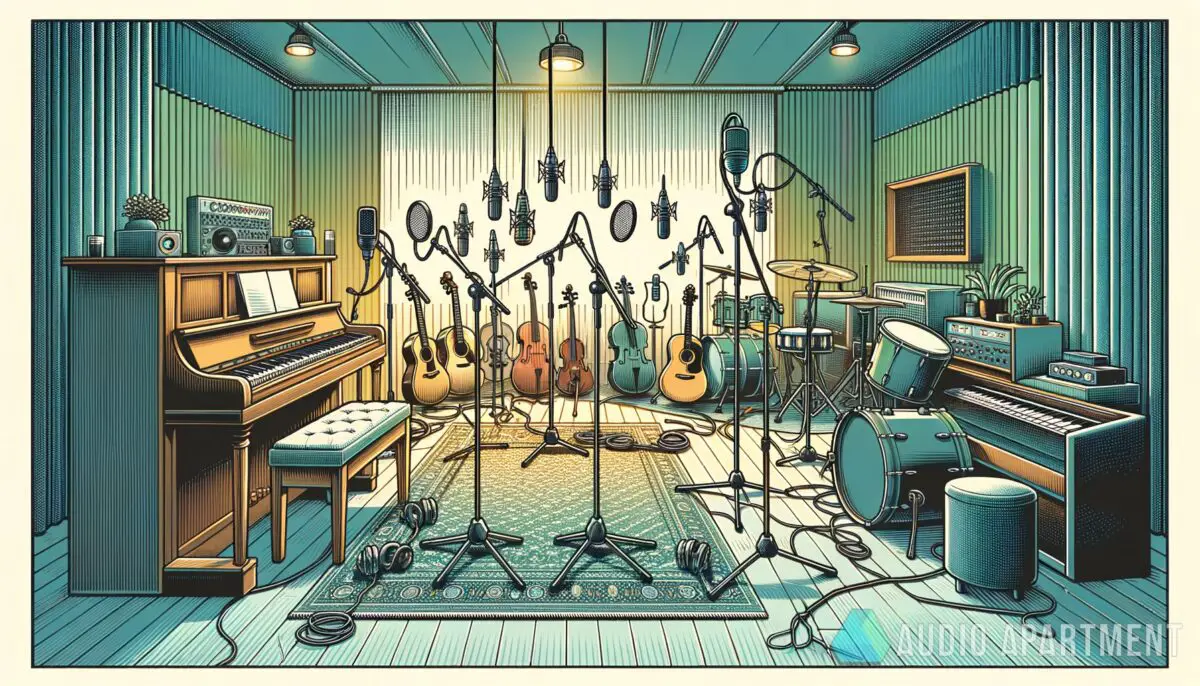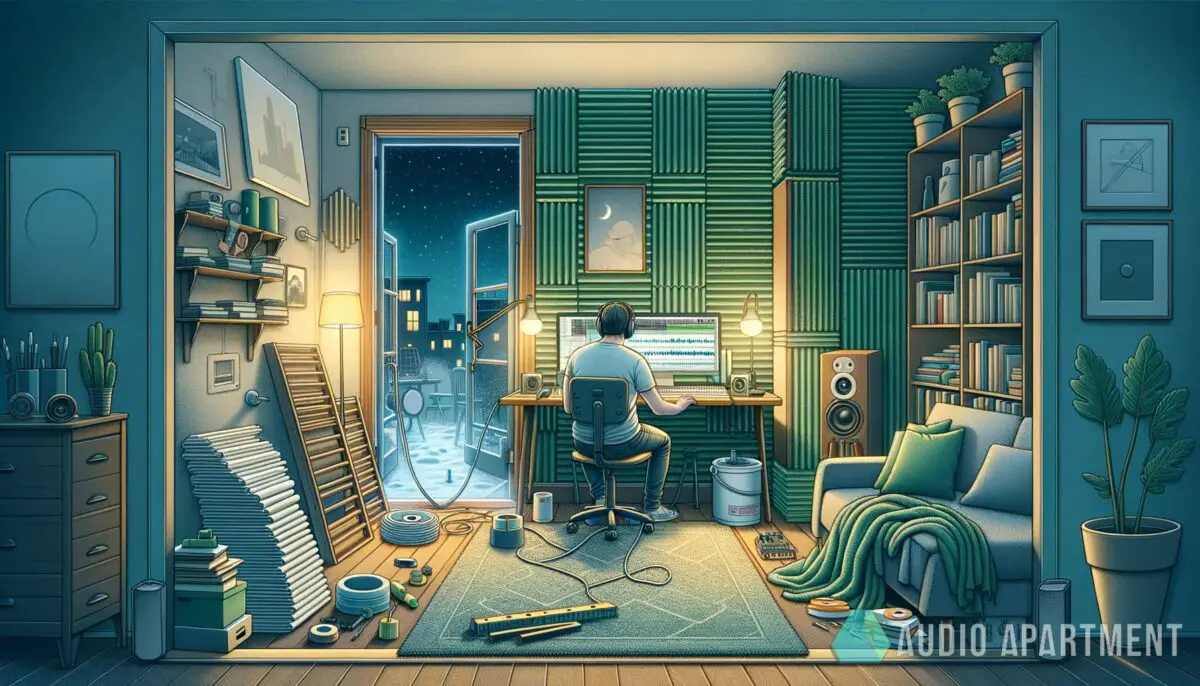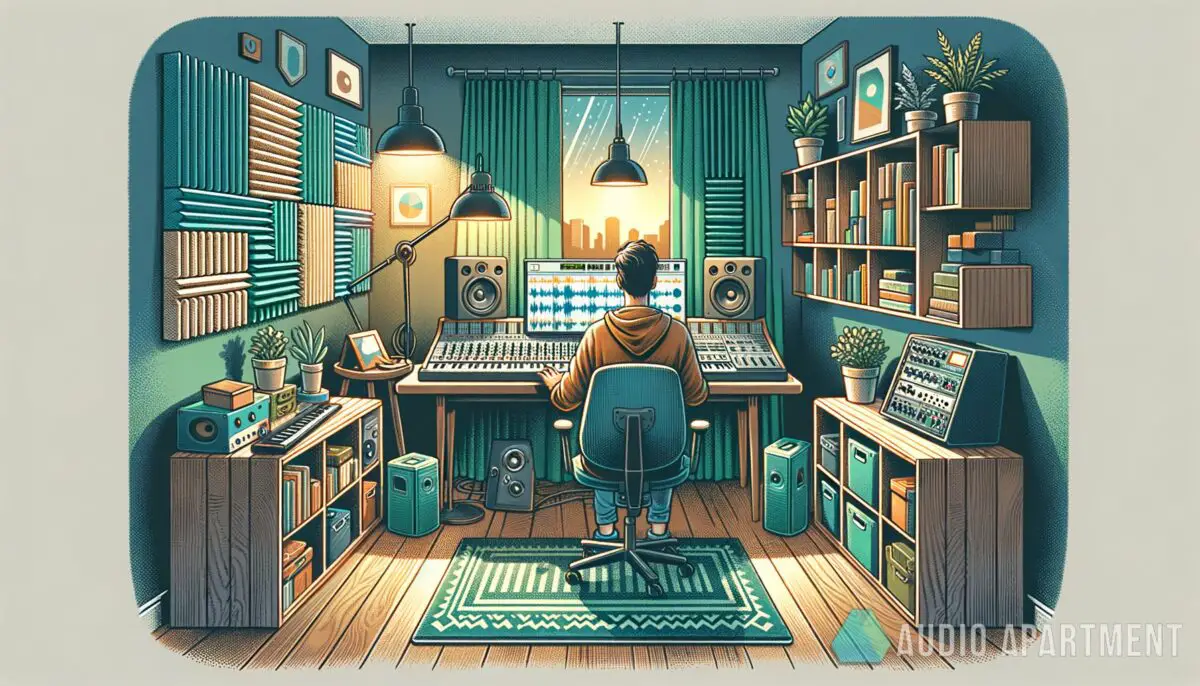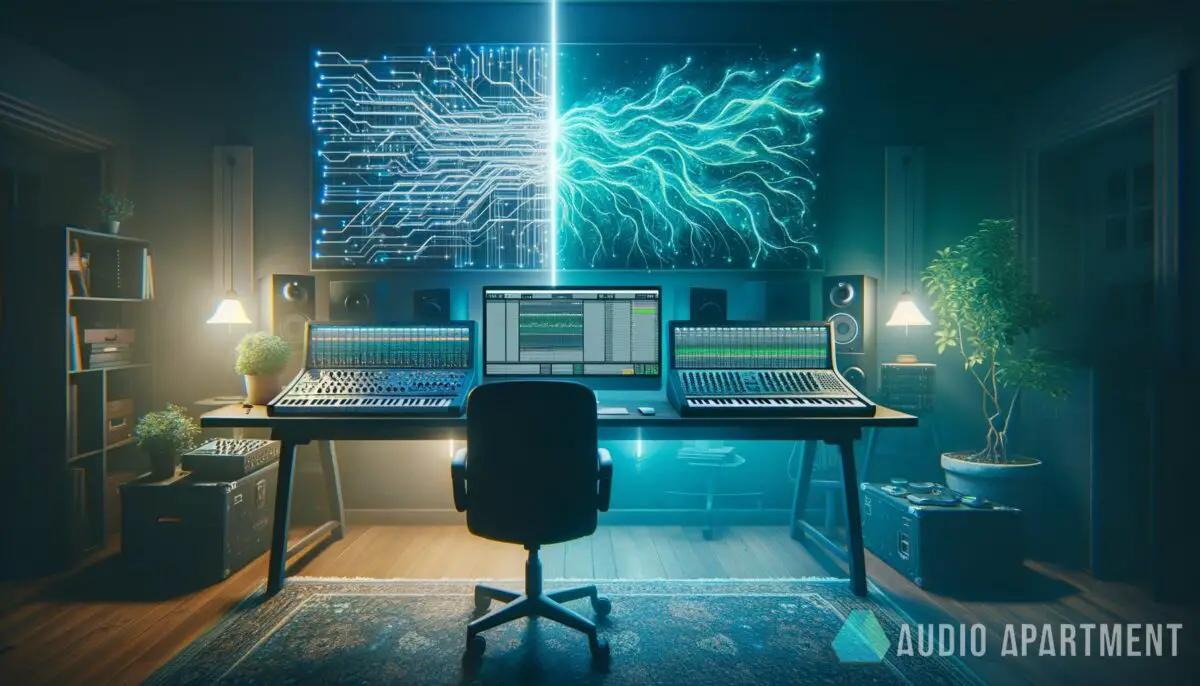Do you often find yourself recording vocals or guitars in your home studio? If so, you might be wondering if you need a pop filter. In this article, we’ll explain what a pop filter is and show you the benefits of using one. So if you’re interested or are just curious about pop filters, this post is for you!
Do I need a pop filter for recording guitar? No—you do not need a pop filter when recording guitars. However, you might need one when recording vocals. This is because vocals are typically recorded with a microphone that is placed close to the speaker’s mouth. This can create a lot of unwanted noise (called “pop”) that needs to be eliminated.
What is a pop filter?
A pop filter limits the high-frequency sounds that tend to emerge when recording vocals. Pop filters have a piece of mesh the size of your hand wrapped in plastic. The mesh material might be anything from a flexible fabric like nylon to a rigid metal framework. It has a flexible gooseneck that can be clamped to a microphone stand.
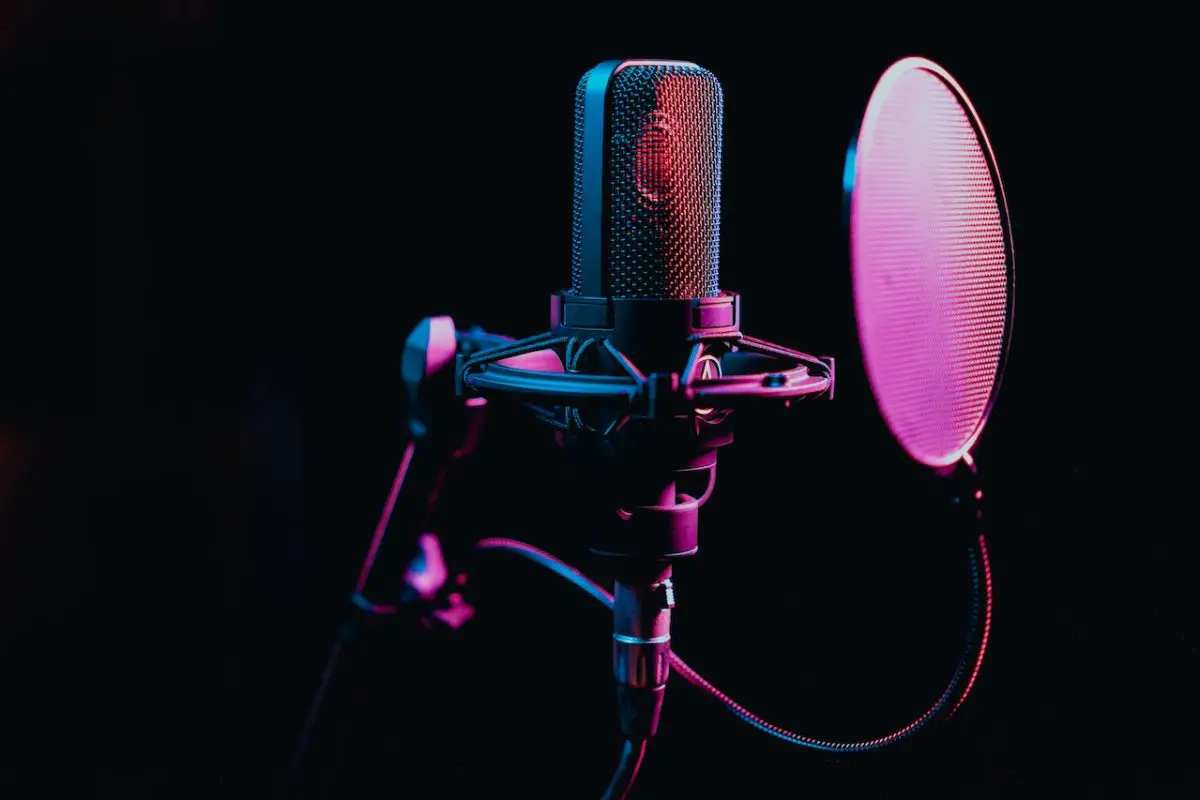
A pop filter is positioned close to the microphone to reduce unwanted noise. In most cases, a distance of two to six inches works nicely between you and the microphone. The performer or speaker stands a few inches away from the pop filter and sings or talks into it. Of course, the precise distance will be affected by factors such as the speaker’s voice, the room’s volume level, the space’s acoustics, and more.
There are three distinct varieties of pop filters from which to choose.
- Nylon mesh pop filters: Pop filters are typically made of woven nylon that has been stretched over a round frame. Nylon mesh is commonly used in pop filters because it is affordable and effective. In addition, this pop filter could reduce the volume of higher frequencies while recording.
- Metal mesh pop filters: Pop filters made of metal mesh are another common option. Pop filters made of metal are more expensive than nylon mesh, but they are better at reducing or eliminating plosive sounds across a wider range of frequencies.
- Foam windscreens: Foam windscreens are very common and come with just about any microphone you purchase. Foam windscreens are also helpful for outdoor boom microphones, and lavalier microphones are worn by the speaker.
Nylon and metal mesh pop filters are more successful at dampening plosive noises than foam windscreens, which are sometimes placed too near the mic to be useful.
AKAI Professional MPK Mini MK3

AKAI Professional MPK Mini MK3
How do pop filters work?
Pop filters reduce or eliminate the popping sounds that harsh consonants like P, B, T, D, K, and G make. This makes recordings sound better. When a speaker blows out quickly, the air blasts back and forth against the mic capsule, making a plodding sound.
Blowing air causes an unpleasant sound that rises above other vocal tones. Sibilance, the hissing sound made by air passing through teeth during consonants like S and Z, can also be muffled using a pop filter.
What are the benefits of using a pop filter?
Here are some of the many benefits of using a pop filter.
- They reduce the popping sounds in your recording.
- They aid in the reduction of sibilance and plosives like Ps and Bs (the hissing noise that can come from overly apparent S sounds)
- They can protect your microphone by preventing condensation.
- They give your setup a professional look.
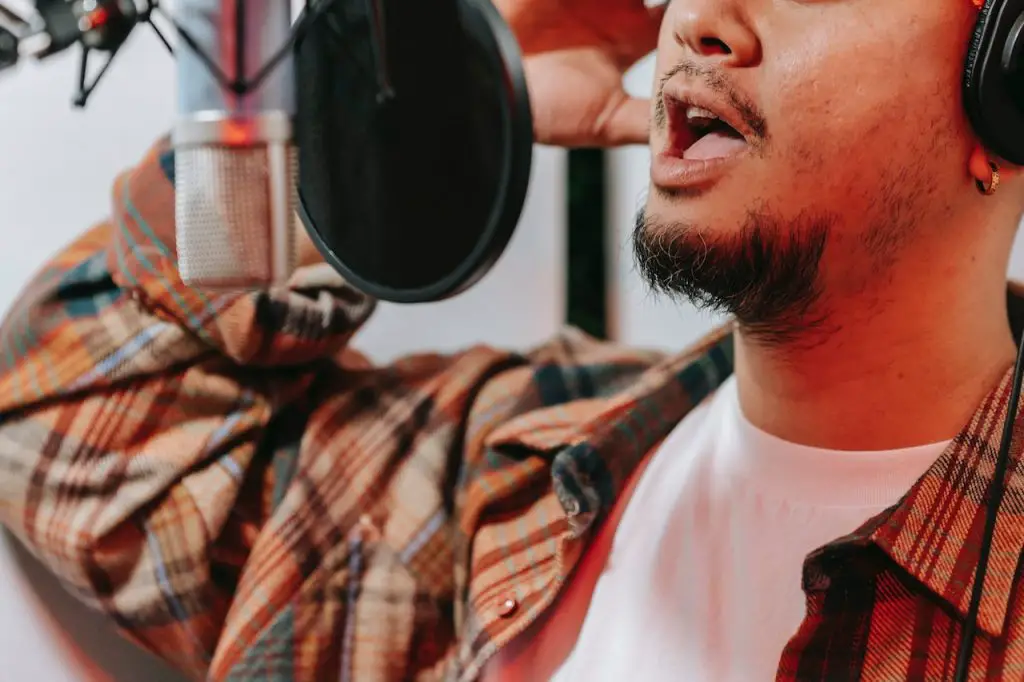
Why don’t you need a pop filter to record guitar?
We now understand that the pop filter is designed to eliminate the sudden bursts of air produced by plosive singing sounds. However, since the guitar is a string instrument rather than a wind instrument, it does not produce plosive noises and hence does not need a pop filter.
pop filter is designed to eliminate the sudden bursts of air
produced by plosive singing sounds…
An acoustic guitar part, in which you may switch between plucked and strummed passages, has a relatively broad dynamic range (the difference between the loudest and softest notes) compared to a vocal part. Clipping may still occur with these volume adjustments.
When do you need a pop filter?
When recording a person’s voice in a small, quiet space like a recording studio, with the mouth facing the microphone, you need a pop filter. You should use a pop filter if you are more than a couple of inches away from the microphone. As a rule of thumb, this is the sweet spot for loudness, tone, and sound quality.
In addition, a pop filter will greatly reduce the number of plosives that make it into your recording at this distance.
If you want even more tips and insights, watch this video, “Do you always need a Pop Filter when recording vocals?” from the GaragebandandBeyond YouTube channel.
Frequently asked questions (FAQ)
Do you still have questions? Below are some of the most commonly asked questions about whether a pop filter is needed for recording guitar.
Why do people use pop filters?
A pop filter is a simple tool for making your voice sound better. They help soften consonants that are hard to say, like the letters “p” and “b,” which are called “plosives” as a group.
A pop filter is often put on microphones in a recording studio to reduce unwanted noise. Its job is to reduce or eliminate the popping sounds that can happen when recording speech or singing. These noises are caused when fast-moving air hits the microphone.
Is a pop filter needed in recording music?
A pop filter is not required. However, I strongly advised using a pop filter when recording vocals.
Can you DIY a pop filter?
Yes! Start by shaping a wire coat hanger into a circle for your pop filter. After that, you may create a flat, drum-like surface by pulling a pair of tights over the wire. Finally, tape or a clamp may be used to secure the filter to the mic stand after it has been positioned in front of the microphone.
Conclusion
Microphones could pick up even the tiniest bit of popping snapping sound, thus affecting the sound quality. That’s why a filter is so important when recording vocals!
This article covered what a pop filter is, how they work, and the types of pop filters. Here are some key takeaways:
Key takeaways
- Pop filters consist of a mesh material the size of your hand that is encased in plastic.
- Pop filters reduce or eliminate the popping sounds that harsh consonants like P, B, T, D, K, and G make.
- There are three distinct varieties of pop filters.
So, do you always use a pop filter? And did I cover everything you wanted to know? Let me know in the comments section below (I read and reply to every comment). If you found this article helpful, share it with a friend, and check out my full blog for more tips and tricks on music production. Thanks for reading, and never stop making music.



